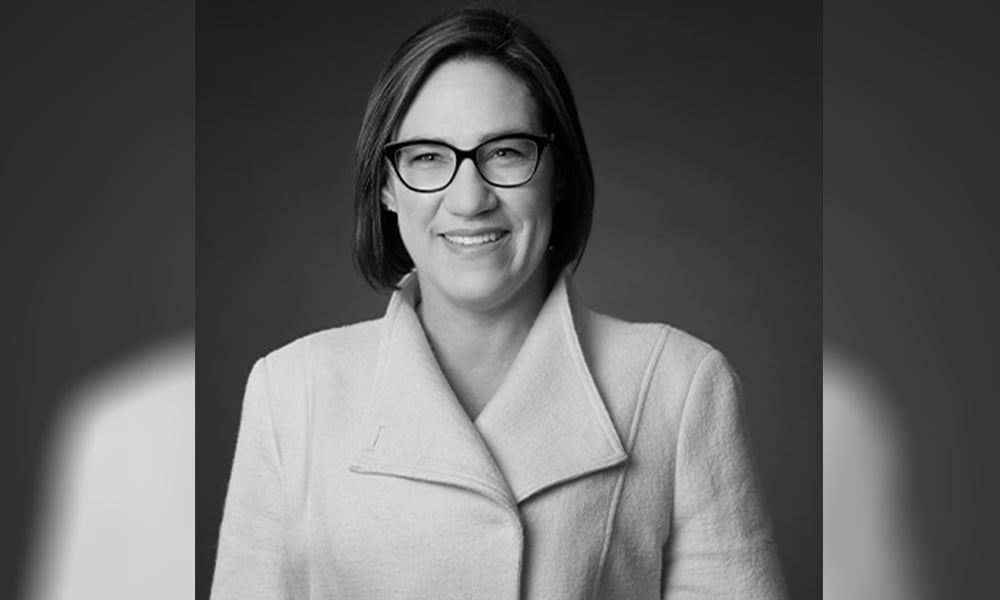
Bernice Ellis talks about the tools for professional success

It was a desire to be done with numbers that got Bernice Ellis into law. After a few stints working in tax, she said found herself “drowning in numbers and spreadsheets” one early morning—spurring a decision to go back to school and get her law degree.
Despite her late start in law, today Ellis is thriving in Mills Oakley’s dispute resolution practice in Canberra as a partner leading an all-female team. Throughout her time in law, she has picked up the keys to professional success—one of which is learning to laugh every day.
In this interview, Ellis talks about facing clients in jeans and flannies, gender and diversity in Mills Oakley, appreciating a good “thank you,” embracing work operation changes in COVID-19 and building relationships of trust and respect.
What made you choose a career in law?
I came to law late in life. I actually did commerce and accounting at university, then worked as a tax adviser for a Big 4 accounting firm and then for a US multinational defence contractor. As the in-house tax manager of Raytheon Australia, I found myself drowning in numbers and spreadsheets and, in the early hours of one morning when I was still at work, decided that numbers were killing me and I actually wasn’t that great with them. I went back to university to get my legal qualifications and ideally be done with numbers for good.
What do you love most about your job?
Problem-solving. Understanding the problem; the human stories behind the problem; the client’s wishes: the good, bad and ugly of the client’s legal position and options; and then getting to work to help move the client to a better place than they were before we met.
What is going on at the firm? Are there any new programs and initiatives that you’re particularly interested in?
Mills Oakley always has its eye on growth, but our focus is on consolidating success and cementing our place as a top-five independent Australian law firm. As a female partner with an all-female team, I’m delighted to see that gender and diversity issues are towards the top of this agenda and our CEO is honest about what needs to change. Innovation and how we can work smarter for ourselves and our clients is also important to the firm.
What has been your proudest accomplishment in the last year or so? What’s the biggest lesson you learned in the past year and what advice can you give fellow lawyers about it?
I’m always proud when clients say “thank you” or I’m complimented on my own and my team’s work. Fortunately, there’s been lots of that over the past year, so life is good! Over the years the lessons I have learned for professional success are to listen, be courteous, be dignified, stay true to yourself, back your judgment, own your actions, embrace change and laugh every day.
What should the profession and law firms focus more on?
People—both the clients and lawyers—because law firms don’t exist without either. Law firms sell knowledge, so you have to look after the person in whose brain the knowledge resides. The best sources of work come from relationships of trust and respect so you need to look after the client to build that relationship.
In my experience, there’s always a smarter lawyer or more sophisticated product a client could use, but a team of inspired lawyers with strong client relationships are the key to a successful practice.
What are the challenges you expect in your practice, and in the business of law in general, going forward? What challenges are particularly pressing in the country’s legal industry?
In my practice, and I think the practice of law generally, clients are demanding increased transparency around service delivery and cost. Many of my clients now want to know exactly what we are going to do, why, how, when and for how much. This means we almost need to have a complete roadmap of how a matter will run before we can pitch our services to the client. Any litigator will agree that dispute resolution is far from a certain process, so respectfully managing client expectations can be time-consuming and, at times, as challenging as solving the original problem itself.
Funnily enough, during the height of the COVID-19 restrictions, I think clients became more comfortable with the idea that you can’t always control or predict every aspect of how a matter unfolds. Maybe this more relaxed approach was because they had other, more stressful things going on in their life at that time, or maybe us wearing jeans and flannies instead of suits was the ticket!
What are you looking forward to the most in the coming year?
I’m really looking forward to carrying on some of the new things that came out of COVID-19 about how we work, such as nimble decision-making; flexible working location and hours; remote meetings with clients, colleagues and staff; more flexible ways of interacting with the courts, including remote appearances, e-filing and direct access to court staff; and showing our clients we are output and not process driven, so it doesn’t matter where we are, when we work or what we wear so long as the job gets done.
Like any change, my team and I were apprehensive of what COVID-19 restrictions would bring for our work, but we embraced the change, supported each other, and our clients came along without murmur—we never want to change back!